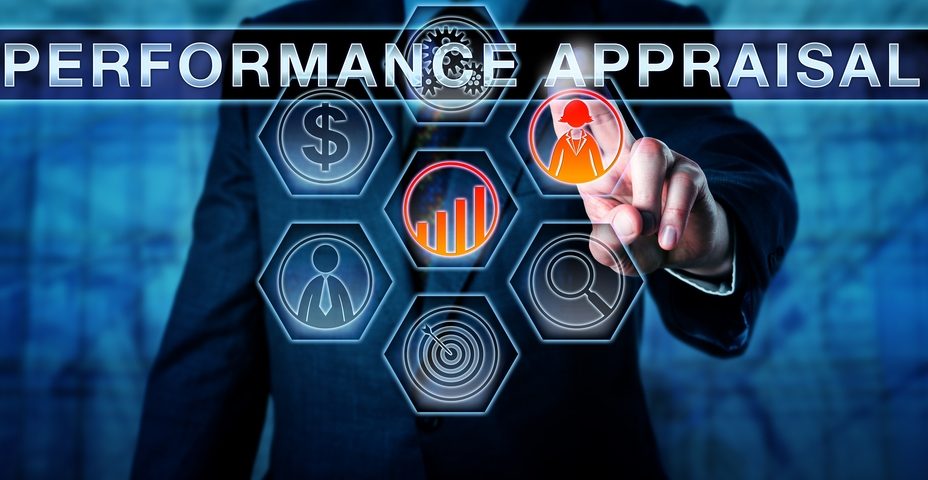Difference between Performance Management System Vs. Performance Appraisal

Dec 4, 2023
Last updated on Jul 22, 2025
In many organizations, the terms "performance management" and "performance appraisal" are often used interchangeably, creating confusion about their distinct roles in human resource management. The most valuable asset of any successful organization is its human capital. Understanding the difference between performance appraisal and performance management is crucial for implementing effective systems that manage employee performance, align individual contributions with company goals, and promote continual growth and improvement.

While performance management and appraisal are closely related concepts in HRM, they serve different purposes and operate at different frequencies. Two vital tools for managing and developing human resources are performance appraisal systems and performance management systems. The key difference between performance appraisal and performance management lies in their scope and timing: performance appraisals are formal, periodic evaluations that assess past performance, while performance management is an ongoing, holistic process focused on continuous improvement and future development.
Performance appraisal vs performance management represents complementary approaches rather than competing systems. Performance appraisals offer periodic evaluations within a defined structure and criteria. In contrast, performance management emphasizes ongoing alignment, feedback, and development to drive continual improvement. Understanding the need of performance appraisal within the broader context of performance management appraisal systems enables organizations to leverage both approaches strategically.
This article will examine the distinct characteristics and objectives of each methodology and explore how performance appraisal in HRM can be integrated with comprehensive performance management strategies.
What is performance management?
Performance management is an ongoing process that aligns what employees do with what your business needs to achieve. It’s a structured way to track, evaluate, and improve how people perform so they contribute directly to your company’s success.
Think of it as more than just annual reviews. Performance management creates a complete system that supports employee growth while driving business results. It connects individual work to company goals through regular communication and clear expectations. Key characteristics of performance management systems include:
- Goal-oriented: Establishes clear objectives, success metrics, and aligned activities. Creates line-of-sight between employee tasks and organizational strategy
- Customized: Tailored to organizational culture and needs. Flexible to adapt to changing internal and external conditions.
- Continuous: Involves regular check-ins, feedback opportunities, and reviews throughout the year. Emphasizes ongoing dialogues rather than isolated annual reviews.
- Developmental: Identifies strengths to leverage and areas of improvement to build skills. Places high priority on growth and capability building.
- Collaborative: Managers and employees partner to set expectations, solve problems, and discuss progress. Fosters trust and engagement through two-way communication.
Companies with strong performance management see measurable improvements in key areas. Employee productivity increases when people understand exactly what’s expected. Engagement goes up when employees feel supported and see clear career paths ahead.
You’ll also retain more top talent. People stay when they know their contributions matter and they have opportunities to grow. This reduces costly turnover and protects institutional knowledge.
Most importantly, performance management ensures individual effort adds up to organizational achievement. When everyone’s work aligns with business priorities, you’re more likely to hit strategic targets and stay competitive.
Performance management isn’t just about evaluating people. It’s a business tool that maximizes the value your workforce creates while helping employees succeed in their roles.

What is a performance appraisal?
A performance appraisal is a systematic process used by organizations to evaluate and document employee job performance over a specific period. Also known as a performance review or employee evaluation, this regularly scheduled formal process assesses how well employees meet predefined standards and organizational expectations.
Performance appraisals are typically conducted annually or semi-annually as part of career development and serve as a key component of broader performance management systems. The process involves structured measurement and documentation of accomplishments, behaviors, and achievements against established goals and criteria. Core characteristics of performance appraisals:
- Retrospective: Assesses accomplishments, skills, and performance for a preceding period.
- Systematic: Follows consistent structure, metrics, forms, and procedures. Allows comparisons across groups.
- Formal: Documentation is maintained for performance data and future reference.
- Individual: Focuses on each employee’s competencies, achievements, behaviors, and development areas.
- Quantitative: Relies heavily on scores, ratings, and performance metrics.
While appraisals have limitations, they provide valuable formal assessments and data points that complement ongoing performance management.
Organizations typically use various performance appraisal methods including graphic rating scales, 360-degree feedback, management by objectives (MBO), behavioral assessments, and self-evaluations. The chosen method depends on company culture, role requirements, and organizational goals.
While performance appraisals focus on evaluating past achievements, they serve as valuable formal assessments that complement ongoing performance management efforts and provide critical data points for strategic HR decisions.

Distinct differences between performance appraisal and performance management
Managing employee performance is essential for organizational success. While both play an important role, there are key differences between performance management system vs performance appraisal:
| Aspect | Performance appraisal | Performance management |
| Time orientation | Retrospective in nature: Focuses on evaluating past performance based on set criteria and goals. Generally conducted at specific intervals, often annually or semi-annually. | Future-focused: Primarily concerned with ongoing performance and future objectives. Continuous process, with regular check-ins, feedback, and adjustments as needed throughout the year. |
| Nature and approach | Reactive: It’s a response to past performance, where strengths and weaknesses are identified. Individual-focused: Targets individual accomplishments, competencies, and gaps. | Proactive: Anticipates challenges and addresses them in real-time, facilitating growth and improvement. Holistic: Considers collective performance and how individual contributions align with team and organizational goals. |
| Frequency and engagement | Infrequent: Conducted periodically, often once or twice a year. More formal in nature, involving structured reviews and feedback sessions. | Ongoing: A continuous loop of setting expectations, monitoring, feedback, and adjustments. Involves regular dialogues, fostering a stronger manager-employee relationship. |
| Metrics and evaluation | Quantitative: Heavily reliant on numerical scores, ratings, and rankings. Outcome-based: Focuses on whether targets were met, often lacking context or broader perspective. | Qualitative: While it can involve quantitative metrics, it also emphasizes feedback, discussions, and developmental plans. Process-oriented: Concerned with the ‘how’ – the methods, behaviors, and strategies employed by individuals to achieve results. |
| Flexibility and adaptability | Rigid: Operates within a fixed framework with predefined criteria and limited scope for adjustments. Typically focuses on job descriptions, set objectives, and benchmark comparisons. | Dynamic: Allows for adjustments in goals and strategies in response to changing business needs or external factors. Emphasizes role clarity, evolving expectations |
Frequently Asked Questions About Performance Management and Appraisal
1. How often should performance appraisals be conducted?
Most companies conduct performance appraisals once or twice a year, but the best frequency depends on your business needs. Many organizations are shifting to more frequent reviews for faster feedback and quicker improvements. Common review schedules:
- Annual reviews: Once yearly (traditional approach)
- Semi-annual reviews: Twice yearly for mid-year check-ins
- Quarterly reviews: Four times yearly for agile feedback
- Monthly check-ins: For fast-paced environments
The goal is to find the right balance between giving meaningful feedback and managing the time investment for your managers and employees.
2. How does performance management support employee development?
Performance management drives employee growth in practical ways that benefit your business. It starts with clear expectations so employees know exactly what success looks like and how their work connects to company goals.
Regular feedback helps people improve quickly instead of waiting months to address issues. Managers can spot skill gaps early and provide targeted training that actually makes a difference. The process also creates clear paths for career advancement, which keeps your best people engaged and reduces turnover.
When employees see real opportunities to grow and understand how they contribute to business success, they perform better and stay longer.
3. What is the relationship between performance management and appraisal?
Think of performance appraisals as formal checkpoints within your broader performance management process. Performance management happens year-round through regular conversations and feedback. Appraisals are the scheduled, structured reviews that document progress and inform major decisions.
The two work together seamlessly. Daily performance management makes appraisals more accurate and less stressful because there are no surprises. Appraisal results then guide ongoing coaching and development plans.
This combination ensures you’re both holding people accountable for results and supporting their future growth.
4. Can performance management and appraisals work together?
Absolutely. Companies that use both approaches see better results than those that rely on just one.
When you provide continuous feedback throughout the year, formal appraisals become more meaningful conversations rather than stressful evaluations. Employees know where they stand, and managers have better data to work with.
This integrated approach leads to higher employee engagement, improved performance, and stronger alignment between individual work and business priorities. Your people development becomes more strategic and your business outcomes improve.
In today’s dynamic business landscape, agility and alignment are key. Understanding the difference between performance appraisal and performance management enables organizations to implement more effective HR strategies. The comparison of performance management system vs performance appraisal illuminates the significance of an integrated approach. Talentnet’s performance management system service empowers organizations to optimize human capital through comprehensive performance appraisal in HRM solutions, the most valuable asset driving sustainable growth. By defining performance appraisal within the broader context of performance management appraisal systems, organizations can address the need of performance appraisal while maintaining focus on continuous development. There are exciting innovations in performance metrics, key performance indicators, and best practices for building a high-performance culture.

Solve your HR problems!
6th Floor, Star Building, 33 Mac Dinh Chi, Saigon Ward, Ho Chi Minh city, Vietnam




